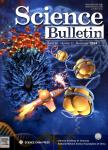甲烷产生与氧化微生物的冷适应特征驱动的生态系统反馈
Cold-adaptative methanogens and methanotrophs drive ecosystem feedback作者机构:College of Resources and EnvironmentUniversity of Chinese Academy of SciencesBeijing 100049China Beijing Yanshan Earth Critical Zone National Research StationUniversity of Chinese Academy of SciencesBeijing 101408China State Key Laboratory of Tibetan Plateau Earth System Science(LATPES)Beijing 100101China
出 版 物:《Science Bulletin》 (科学通报(英文版))
年 卷 期:2023年第68卷第13期
页 面:1359-1360页
核心收录:
学科分类:081702[工学-化学工艺] 08[工学] 0817[工学-化学工程与技术] 0824[工学-船舶与海洋工程]
基 金:supported by the Strategic Priority Research Program A of the Chinese Academy of Sciences (CAS) (XDA20050104) the Joint CAS-MPG Research Project (HZXM20225001MI) the National Natural Science Foundation of China (42041005) the Second Tibetan Plateau Scientific Expedition and Research (STEP) Program (2019QZKK0304) the Fundamental Research Funds for the Central Universities
摘 要:Peatlands, though covering only 3% of the earth surface, contain 300–400 pg carbon (C) and account for ∼30% of the global soil C pool [1], [2]. Global warming would influence the CH4 release from peatlands through accelerating the fermentation of large quantities of long-accumulated soil organic carbon to CH4 by microorganisms particularly methanogens [3]. However, the ultimate CH4 budget in peatlands under the global warming scenario is also determined by changes in the CH4 oxidation activity of the methanotrophs [4]. Thus, identifications of active methanogens and methanotrophs, as well as their metabolic potentials in peatlands, are essential for understanding the overall peatland feedback to global warming.



